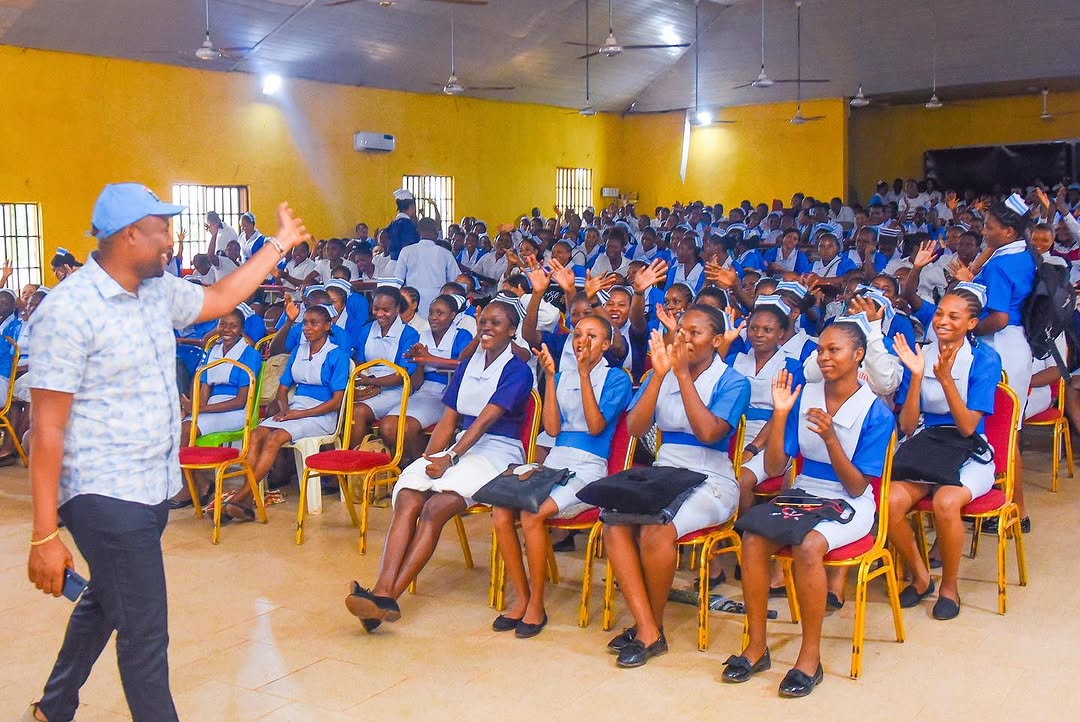The Power of the People: A Victory Against Government Overreach In Delta State, By Maazi Tochukwu Ezeoke | Sahara Reporters

Nurse Osato’s supposed crime? Participating in a song titled “Na Your Mama Be Dis,” which the Delta State Government and college authorities deemed offensive to Senator Remi Tinubu, the wife of President Bola Tinubu, during her visit to the institution on March 27, 2025. For this, the college sought to penalize her, threatening disciplinary action for what was little more than an expression of free speech. The heavy-handed response from the authorities was not just an attack on Nurse Osato—it was an assault on the fundamental rights of every Nigerian to speak, to create, and to challenge the powerful without fear of retribution.
In a striking display of collective resistance, Nigerians have once again proven that the voice of the people can triumph over authoritarian overreach. The recent ordeal of Nurse Osato Edobor, a nursing school student at Delta State College of Nursing Sciences, serves as a glaring example of how far government and institutional authorities are willing to stretch their power to silence dissent—and how swiftly they can be forced to retreat when citizens stand united.
Nurse Osato’s supposed crime? Participating in a song titled “Na Your Mama Be Dis,” which the Delta State Government and college authorities deemed offensive to Senator Remi Tinubu, the wife of President Bola Tinubu, during her visit to the institution on March 27, 2025. For this, the college sought to penalize her, threatening disciplinary action for what was little more than an expression of free speech. The heavy-handed response from the authorities was not just an attack on Nurse Osato—it was an assault on the fundamental rights of every Nigerian to speak, to create, and to challenge the powerful without fear of retribution.
This incident reeks of government overreach at its worst. The Delta State Government, in tandem with the college, attempted to flex its muscle over a young woman whose only offense was engaging in a cultural act that ruffled the feathers of the elite. That the song was interpreted as a jab at Senator Tinubu is beside the point; the authorities’ reaction reveals a deeper, more troubling truth: those in power are increasingly intolerant of any form of expression that does not bow to their whims. This is not governance—it is repression dressed up as discipline.
Thankfully, Nigerians did not sit idly by. The swift mobilization of voices, both online and on the ground, turned the tide. A team led by Chioma Ifemeludike, a Nollywood actor and member of the Take It Back Movement, stood shoulder-to-shoulder with Nurse Osato as she faced the school authorities. Their presence, coupled with the outrage of countless citizens, sent a clear message: we will not tolerate the silencing of our own. I personally reached out to the Delta State Commissioner of Health, who confirmed that the state had reversed its initial recommendation to penalize Nurse Osato. The disciplinary panel she was set to face? Dissolved. The letter threatening her future? Retracted. This is a victory not just for Nurse Osato, but for every Nigerian who believes in the right to speak freely.
Yet, this incident should serve as a wake-up call. The fact that such a petty grievance escalated to the point of official sanction exposes the fragility of our freedoms under a government that seems all too eager to clamp down on dissent. What happened to Nurse Osato is not an isolated case—it is a symptom of a broader disease. From the harassment of journalists to the intimidation of activists, the Tinubu administration and its allies have shown time and again that they view criticism as a threat to be crushed rather than a democratic right to be protected. This is not the Nigeria we deserve.
The reversal of Nurse Osato’s punishment underscores a timeless truth: the power of the collective is mightier than the decrees of the powerful. When Nigerians speak out, when we reject oppression in unison, we force the hands of those who would otherwise trample our rights. But this victory is not the end—it is a clarion call. The forces of repression will not relent unless we remain vigilant. Today, it was Nurse Osato; tomorrow, it could be you or me.
So, I say to every Nigerian reading this: join us now! Don’t sleep through the revolution. The Take It Back Movement and countless others are fighting for a Nigeria where no one is punished for a song, a word, or a thought. We cannot afford to be complacent while our freedoms are chipped away under the guise of propriety or loyalty to the powerful. Nurse Osato’s story is proof that we can win—but only if we stand together.
Maazị Tochukwu Ezeoke











